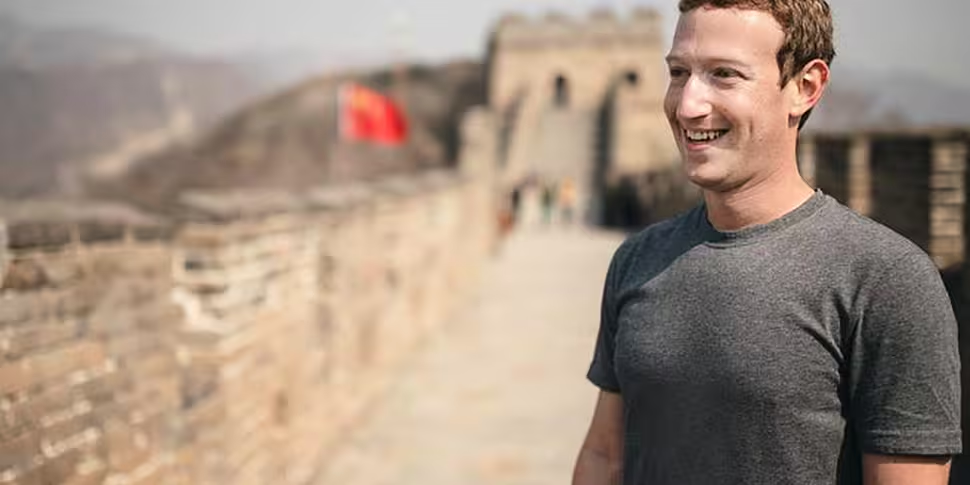As he kicked off his visit, jogging maskless through Tiananmen Square – where it was quickly pointed out online that the air pollution levels were "hazardous" – Mark Zuckerberg's latest charm offensive on China was immediately painted as one of dangerous compromise.

The Facebook founder's sojourn to the Far East last weekend was perhaps his biggest attempt to date to get the Chinese ban on his mammoth social network lifted.
Facebook has been inaccessible in China since the summer of 2009, when the government linked it to the organisation of deadly riots in Xinjiang and tightened its control over the nation's digital freedom.
Other online titans, such as Google, Twitter and Youtube, are also shut out, while politically sensitive material across the net is censored without a second thought.
Zuckerberg has done more than most to drag his own company over this Great Firewall of China and incurred much criticism along the way.
In 2014, the New Yorker showcased his self-described "pretty terrible" Mandarin – his wife, Priscilla Chan, is Chinese – at a 30-minute Q&A in Tsinghua University.
Less impressively that year, he also announced that he had bought his employees copies of a book by China's President Xi Jinping, The Governance of China, to help them "understand socialism with Chinese characteristics".
.@erikcrouch's finest work pic.twitter.com/MjsPSsWydU
— Bridget O'Donnell (@bridgers) December 8, 2014
Last year, he met with Xi in the US, speaking in Mandarin once again, while the President stated firmly that any internet expansion would very much have to happen in line with China's "national realities".
Reaffirming that party stance last December, China's Internet Czar Lu Wei noted that "freedom is our goal, and order is the means to achieve that goal" – a line worthy of 1984's doublethink slogans.
If commentators took umbridge with Zuck's carefree run across the same square where hundreds of students shed blood in the fight for democracy, they certainly wouldn't have approved of the company he was keeping as the trip progressed...
Facebook's Zuckerberg meets with China's propaganda chief https://t.co/RfWk0L1DHj by @louise_watt pic.twitter.com/DxDpKPEPlu
— Gillian Wong / 黄敬龄 (@gillianwong) March 21, 2016
On Saturday, Zuckerberg met with Liu Yunshan, a member of the Standing Committee of the Bureau of the CPC Central Committee – oh, the country's head of propaganda.
According to China's official news organ Xinhua, Liu praised Zuckerberg's "cooperative" approach and also "expressed hope that Facebook, which has advanced technology and governance mode, should work with Chinese internet enterprises to enhance exchanges and share experience so as to make outcome of the internet development better benefit the people of all countries".
So how did the Chinese public react to the trip, primarily scheduled so Zuckerberg could attend the annual meeting of the China Development Forum?
Well, he will be pleased to know some of his Facebook content finally made it past the filter, as FB posts detailing his trip were shared without consequence on China's own restricted social networks, most notably microblog Sina Weibo.
Popular comments beneath the "smog jog" post that caught the BBC's eye included:
"I thought there were two great walls in China: one for Mark Zuckerberg, and one for Chinese residents".
"Who is this? What is Facebook, what website?".
"When I see Zuckerberg running in the haze, what do I think? Feisibuke".
The phonetic transcription of Facebook, feisibuke's characters translate as "doomed to die".
Mark Zuckerberg is serious about making friends with China's 688 million internet users; gaining access to the world's second largest market where other US heavyweights have failed.
The national reality, however, is that while Chinese officials are more than happy to pose for photos with the leading figures of the tech world and shine a spotlight on the platitudes and cynical praise the likes of Zuckerberg shower upon them, the government's most significant recent Facebook-related action was to block Instagram in the wake of 2014 protests in Hong Kong.
It seems likely you'll encounter this screen if you try to check your updates in China for some time to come:










